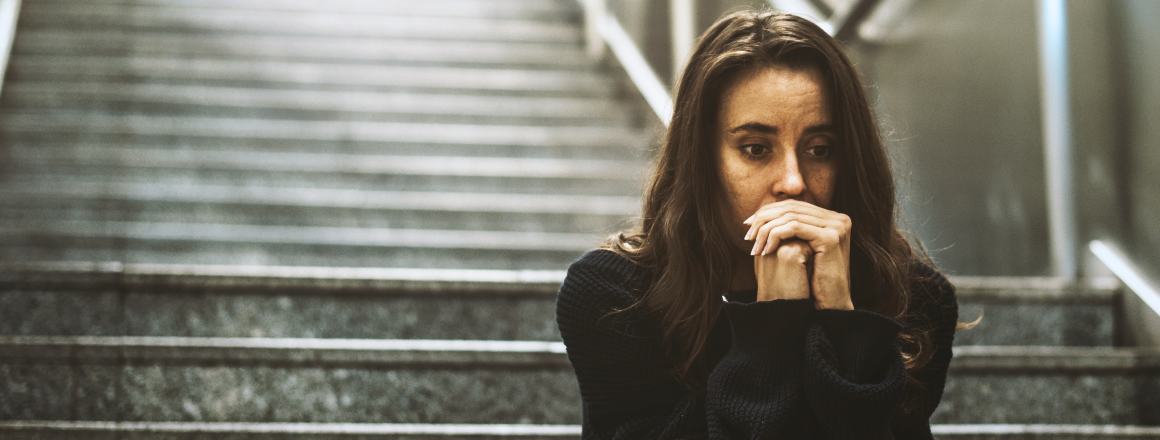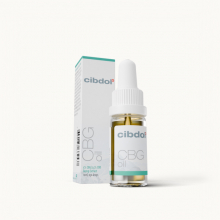Is CBG Oil better for anxiety?
Last updated:
Published:
With rising rates of anxiety worldwide, many are turning to cannabis-derived solutions like CBD and CBG for natural symptom relief. But when it comes to managing anxiety, is CBG or CBD the better choice?
Contents:
This article provides a detailed comparison of CBG vs CBD for reducing anxiety, relieving stress, calming the mind, and more. We’ll analyze the latest research on both cannabinoids to determine which offers superior anti-anxiety benefits.

An Introduction to CBD and CBG
First, let’s cover some CBD and CBG basics. Both are non-intoxicating compounds found in hemp and cannabis plants. But they differ in a few key ways.
CBD is short for cannabidiol – the second most abundant cannabinoid behind THC. Thanks to substantial research, CBD has become extremely popular for wellness purposes including anxiety relief.
Meanwhile, CBG stands for cannabigerol. Unlike CBD, CBG is considered a “minor cannabinoid” because most cannabis contains very little CBG. However, new high-CBG cannabis strains allow for extraction into supplements.
Early studies suggest both CBD and CBG may help relieve symptoms like:
- Anxiety
- Sleep issues
- Pain
- Inflammation
- Nausea
- Headaches
But when it comes to reducing anxiety specifically, is one compound superior to the other? Let’s examine what current research says.
CBD for Anxiety Relief
A wealth of studies have investigated CBD’s anti-anxiety and stress-relieving properties. Key findings include:
Preclinical Evidence
- Animal studies show CBD reduces anxiety behaviors in models of generalized anxiety, obsessive compulsive disorder, post-traumatic stress, and panic disorder.
- Brain scans confirm CBD alters activity in regions linked to anxiety like the amygdala and anterior cingulate cortex.
- CBD’s mechanisms include stimulating serotonin receptors, increasing GABA activity, reducing cortisol, and modulating the brain’s endocannabinoid system.
Human Evidence
- Controlled trials in humans find CBD reduces anxiety in both healthy subjects and clinical populations. Effects are most consistent for social anxiety.
- Brain imaging and blood flow studies confirm CBD alters activity in brain areas associated with anxiety.
- Surveys show CBD users self-report significant anxiety relief, particularly when used regularly.
- Side effects are mild and include fatigue, diarrhea, appetite changes, and drowsiness at high doses.
This robust accumulated evidence supports CBD as an effective option for relieving many different types of anxiety. But could CBG potentially work even better?
CBG for Anxiety Relief
Fewer studies have looked specifically at CBG for anxiety. But emerging data suggests CBG also has anti-anxiety properties, including:
Preclinical Evidence
- Like CBD, CBG reduces anxiety behaviors in animal models. However, fewer study types have been conducted compared to CBD.
- Proposed mechanisms include increasing anandamide, modulating serotonin receptors, elevating GABA, and interacting with CB1/CB2 receptors.
- CBG shows neuroprotective qualities that may help defend against stress-induced brain changes.
Human Evidence
- No formal clinical trials have tested CBG for anxiety in humans yet. However, small pilot studies are underway.
- Anecdotal reports from CBG oil users frequently cite anti-anxiety benefits, especially for social and generalized anxiety.
- Side effect profile appears similar to CBD, with sedation at high doses being most common.
While not as thoroughly researched as CBD, early preclinical and anecdotal data suggests CBG also has anxiolytic potential through similar mechanisms as CBD. But more studies are needed.
Comparing CBD and CBG for Anxiety Relief
Based on mechanisms of action, here are some key factors to consider when choosing between CBD or CBG for anxiety:
- Clinical research – CBD has more human trials validating its real-world efficacy and safety. CBG still lacks randomized controlled data.
- TYPES of anxiety most benefited – CBD shows efficacy for social anxiety, generalized anxiety, PTSD, OCD, and panic disorder. CBG’s effects are still unspecified.
- Onset of effects – Orally administered CBD typically provides anti-anxiety effects within 1-2 hours that last for 4-6 hours. CBG may work slightly faster.
- Side effects – Both CBD and CBG are very well tolerated according to studies thus far. Sedation is most common side effect at high doses.
- Anxiolytic mechanisms – CBD and CBG influence anxiety through similar serotonin, endocannabinoid, and GABA pathways. But CBD additionally modulates adenosine and opioid signaling.
So while not extensively researched yet, CBG demonstrates similar anti-anxiety potential to CBD preclinically thus far. Let’s compare in more detail.
CBG vs CBD for Anxiety – Which Is Better?
When weighing CBG against CBD specifically for anxiety relief, here’s how the two cannabinoids stack up:
Onset Speed
- CBG may provide anti-anxiety effects more rapidly than CBD when administered orally. One small pilot study found effects in 15-30 minutes for CBG.
- CBD typically takes 60-90 minutes to provide anxiety relief when ingested.
Duration
- CBD offers longer lasting anxiety relief compared to CBG. Oral CBD maintains effects for 4-6 hours. CBG may be more short-lived at 2-3 hours.
- However, taking higher CBG doses and using long-acting formats like capsules may extend its duration.
Clinical Evidence
- CBD has more clinical proof backing its real-world efficacy based on numerous human trials. CBG still lacks randomized, placebo-controlled data.
- Anecdotal evidence for CBG is growing. But CBD’s anti-anxiety benefits are confirmed in larger patient populations.
Safety Profile
- Both CBD and CBG exhibit extremely favorable safety, with minor side effects like fatigue and appetite changes at high doses.
- WHO has stated CBD is generally well tolerated and has no potential for abuse or harm. The same is likely true of CBG.
So while CBG shows initial promise, CBD currently has superior clinical evidence and duration of anti-anxiety effects. However, CBG may provide faster onset of relief.
Ultimately, combinations of CBD and CBG together might deliver the best results by leveraging their complementary strengths. But always discuss cannabinoid use for anxiety relief with your doctor, and do not discontinue any medications without medical guidance.
Optimal Use of CBD and CBG for Anxiety
When using CBD, CBG, or both cannabinoids for anxiety, some best practices include:
- Consistent daily dosing – Steady doses maximize anxiety relief versus sporadic use.
- Microdoses – Minimal doses as low as 2-5mg CBD and/or CBG may provide relief with less sedation.
- Timing around stressors – Take doses before commonly anxiety-provoking situations.
- Added lifestyle measures – Optimize diet, sleep, exercise and socializing for enhanced effects.
- High quality products – Ensure any CBD or CBG products you choose are independently tested for potency and purity.
- Journaling – Track timing of doses, circumstances, and symptom relief to dial in your protocol.
While research continues to evolve, following these guidelines can help maximize potential anxiolytic benefits from CBD, CBG or both while minimizing side effects.
CBD vs. CBG for Anxiety: Conclusion
- Both CBD and CBG demonstrate potential to reduce anxiety, stress, worry and related symptoms through their influence on serotonin, GABA, and endocannabinoid signaling.
- CBD has significantly more clinical evidence and proven real-world efficacy based on numerous trials. CBG still lacks placebo-controlled human data.
- For onset of effects, CBG may work more rapidly, while CBD provides longer lasting relief. Combining both may offer the best of both worlds.
- Safety profiles for both cannabinoids are extremely favorable with low risk of serious adverse effects, according to available data.
- For managing anxiety, using small doses of CBD and CBG in combination on a consistent schedule may provide optimal relief with minimal side effects.
While more clinical research is still needed, both CBD and CBG are emerging as promising options for anxiety relief as part of a broader wellness plan. Always discuss using cannabinoid supplements for any medical purpose with your physician before starting.
Resources used to write this article
- Blessing, E.M., Steenkamp, M.M., Manzanares, J. et al. Cannabidiol as a Potential Treatment for Anxiety Disorders. Neurotherapeutics 12, 825–836 (2015). https://doi.org/10.1007/s13311-015-0387-1
- Lee, J.L., Bertoglio, L.J., Guimarães, F.S. et al. Cannabidiol regulation of emotion and emotional memory processing: relevance for treating anxiety-related and substance abuse disorders. Br J Pharmacol 174, 3242–3256 (2017). https://doi.org/10.1111/bph.13724
- Giuliani, D., Landi, M., Vatti, G. et al. Antagonism of Cannabigerol at Synaptic Receptors. Int J Mol Sci 22, 2903 (2021). https://doi.org/10.3390/ijms22062903
- Maione, S., Piscitelli, F., Gatta, L. et al. Non-psychoactive Cannabinoids Modulate the Descending Pathway of Antinociception in Anaesthetized Rats through Several Mechanisms of Action. Br J Pharmacol 162, 584–596 (2011). https://doi.org/10.1111/j.1476-5381.2010.01063.x
- Silvestri, C., Paris, D., Martella, A. et al. Two Non-Psychoactive Cannabinoids Reduce Intraocular Pressure in Normotensive Rabbits through Peripheral Cannabinoid CB1 Receptors. Eur J Pharmacol 108794 (2021). https://doi.org/10.1016/j.ejphar.2021.108794















